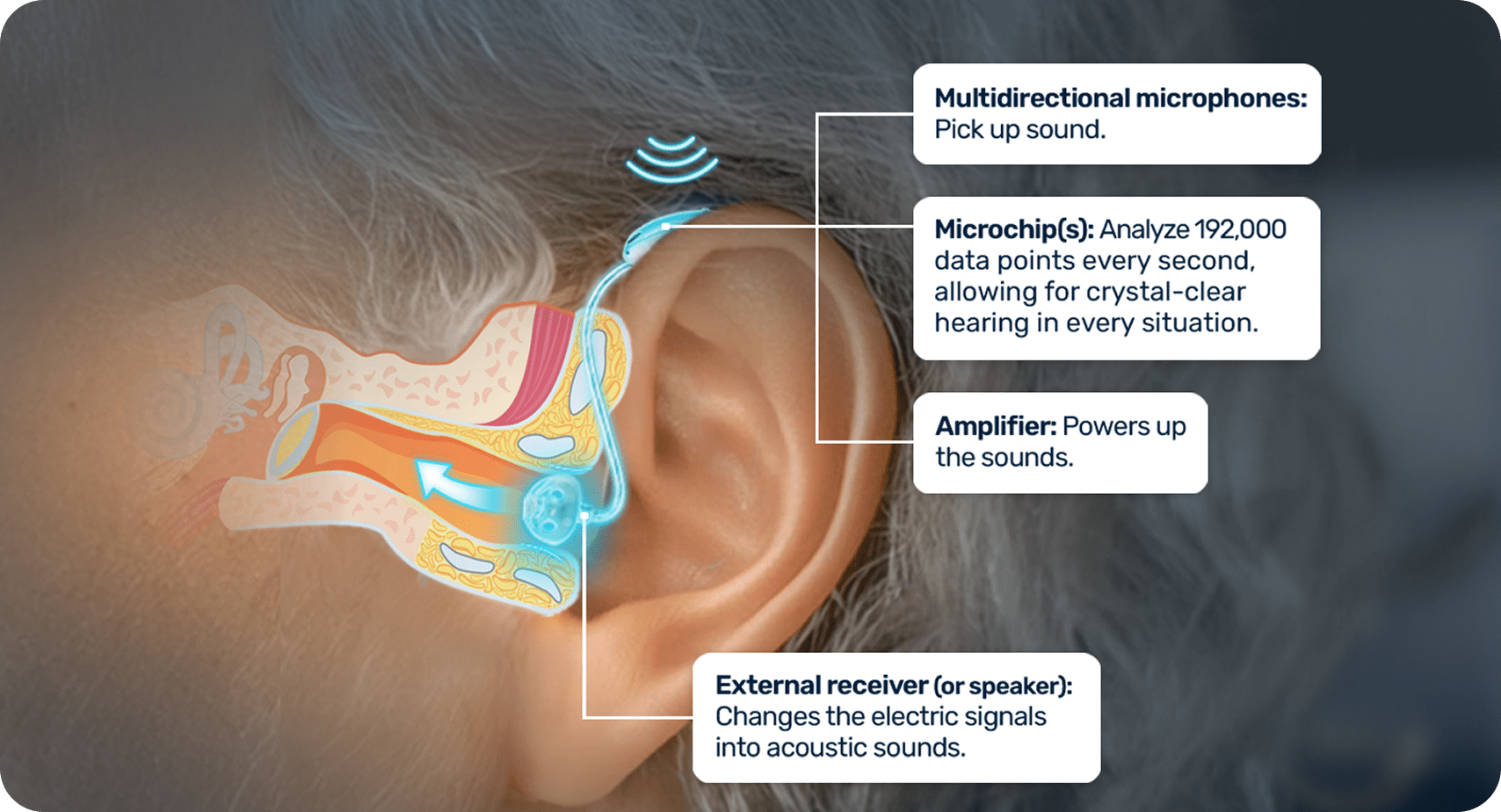Some Do's, Don'ts and Basic Troubleshooting with Hearing Aids
So you got yourself a new pair of hearing aids — that's awesome! Like any other high-tech device, it can...
Read more

Have you ever heard yourself in a recording or voicemail?
You probably thought your voice sounded very different from how it sounds in real life. That's because the sound of your voice reaches your brain differently when you speak compared to when it's played back through a device.
Many first-time hearing aid users report a similar experience the first time they hear their voice through their new devices. If this has happened to you, the good news is that it's completely normal — and it will correct itself over time.
In this article, we'll explore why your voice sounds different when using hearing aids and share some simple exercises to help you adjust.
The biggest reason is bone conduction. When you speak, your vocal cords create vibrations in your skull that travel directly to your cochlea (your inner ear). This makes your voice sound deeper and richer to you than it actually is. If you plug your ears with your fingers and speak, you'll hear a deeper, more internal version of your voice. That's bone conduction at work. When you hear yourself externally, such as in a recording, you're hearing through air conduction, which stimulates your cochlea differently.

With hearing aids, two things happen:
Together, these changes can make your voice sound strange at first. But don't worry—your brain will adjust. Within a week or so, you likely won't even notice the difference anymore.
It's similar to how your brain reacts to a new smell. When you first meet someone wearing perfume or cologne, you notice the scent immediately. But after a few minutes, your brain tunes it out. That's because our brains are wired to focus on new stimuli and ignore what becomes familiar.
At first, you might feel self-conscious about the volume of your voice. However, as every experienced hearing aid user will tell you, you will get used to the sound of your voice and get better at judging the appropriate speaking volume with a little practice.
Here's a simple exercise: Find a quiet place at home and read aloud while wearing your hearing aids. Choose a book, newspaper article, or even something familiar like the Pledge of Allegiance:
"I pledge allegiance to the Flag of the United States of America, and to the Republic for which it stands, one Nation under God, indivisible, with liberty and justice for all."
Read out loud for just a few minutes each day. By the end of the first week, you'll feel more comfortable with the sound of your voice and your speaking volume.
You're not alone on your journey to better hearing. If you're having trouble adjusting to the sound of your own voice, don't hesitate to contact us at 888-780-3450 or click here to chat with us online . We're here to help you adjust to your new devices so you can enjoy life with better hearing.
So you got yourself a new pair of hearing aids — that's awesome! Like any other high-tech device, it can...
Read more
You've made an awesome investment in your quality of life. You have more energy, feel less stressed, and your conversations are easier...
Read more
Many of today's hearing aids can be paired with your iPhone or Android mobile phone. This allows you to control the volume, adjust your sound preferences...
Read more

Take our free 2-minute question-based hearing test!
It will help you make an informed decision on treating your hearing loss.